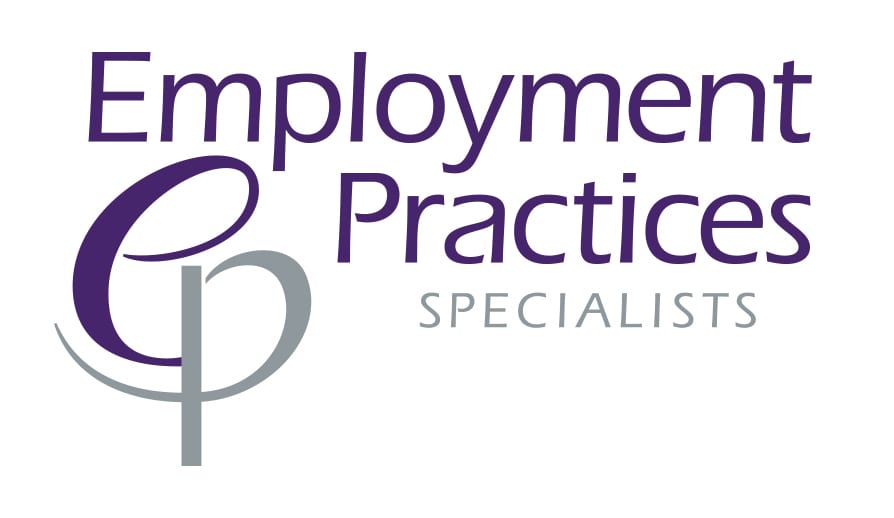
SHRM Interview with Allison West
As a now retired employment law litigator and advisor, I had my fair share of performance termination cases that our clients couldn’t take to trial because of one or more bad documents, some worse than others. Those cases had to be settled because of the difficulty to explain to a jury that what was written was not what was intended. (Good luck with that!) I also had cases where there were no performance counseling documents whatsoever to support the termination. In those circumstances, I knew that jurors might possibly return a verdict in favor of the employee because they would mistakenly jump to the conclusion that the absence of supporting documentation was enough to infer an illegal motive for the termination.
These document problems are the reasons that I was drawn to a 2019 SHRM Annual Conference and Exposition (#SHRM19) Mega Session on the “Seven Steps to Creating Bulletproof Documentation” as an interesting blog subject. After talking to the speaker, Allison West, Esq., SHRM-SCP, SPHR, I was convinced that I had chosen wisely.
Allison is an attorney and HR specialist, delivering customized interactive training, conducting workplace investigations, coaching executives and managers, providing human resources consulting and giving expert witness assistance. She has been speaking at SHRM annual conferences for over ten years, sharing her roadmaps for HR professionals to use to ensure they are practicing especially the most technical parts of their roles in an effective, compliant manner. We are lucky to have her joining us in Las Vegas to talk with the #SHRM19 audience about effective documentation and to share many useful takeaways that are bound to come out of her session!
I already knew that Allison’s documentation session was one of the top ten highest rated presentations at the 2018 SHRM Conference in Chicago. So, I began my interview by asking Allison why she thought that the attendees at her documentation session thought it was so valuable. Allison responded that the value is in her Seven Steps to Creating Bulletproof Documentation. It’s in those Seven Steps that she provides managers who don’t know how to document with the ingredients for a logical framework for them to follow. But, the value of Allison’s framework is not limited to having documents that will help and not hurt the employer in winning cases. Allison places an even higher business value on having documents written so that employees understand the manager’s expectations in a manner to help the employee correct performance.
As a former SHRM Conference speaker for over 20 years, I knew that HR Professionals crave practical – – as opposed to theoretical – – advice. Therefore, I asked Allison to confirm that she delivered content that attendees can implement the moment they return to their offices. Allison assured me that her practical advice includes specific tips to ensure that you and your managers will understand how to articulate performance expectations. Those tips will include details as to words to avoid (“always,” “never,” etc.) and phrases that will not effectively articulate the performance expectation. For example, documentation that informs an employee of the requirement to be at work “on time” is quite different from a document that requires the employee to “be at his/her desk at 8:00 am answering phones.” Allison will also explain to everyone the importance of meeting the “fairness” aspect of discipline that juries want to see and how to provide that by asking the employee for his/her explanation of “what’s getting in your way?”
Allison shares my belief that of all the problems that HR Professionals face, the words appearing in company emails are their “worst nightmare.” I hope that she will find some time to squeeze in a few tips on that important subject.
I learned from talking to Allison that another document problem is caused by managers who do not understand the “nuances” of documents. Telling an employee that his/her performance is “disappointing for someone of their background and education” is more of a “dig” than a fact. Therefore, to avoid nuances, Allison will explain the importance of limiting coaching documents to facts and of omitting opinion, bias, code and Allison’s “Red Flags FOR DISCRIMINATION.”
Finally, I shared with Allison that in my experience, the problems in documentation are just as easily made by the HR Professional as they are by everyone else in management. Therefore, I wanted to know whether Allison’s session would coach the attendees how to avoid these problems in a way that can also be shared with their managers when they returned to their offices. Allison gave me some examples of how she coaches so that some of these problems can be coached: by looking at a document as a government agency would look at it and by providing clearness on expectations so that six months later the manager will be able to remember what was said in the coaching session.
For the other examples, you will need to attend Allison’s Mega Session at 3:00 p.m. on Monday, June 24. I’ll be there live tweeting. I hope you’ll introduce yourself to me.
Upon my retirement from the active practice of law, I became a part-time mediator and arbitrator. From a neutral’s perspective, the bad news is that I’m still seeing numerous instances of poorly written and/or non-existent documentation. The good news is that I anticipate I won’t see documentation problems at my future mediations or arbitrations with anyone who attended Allison’s session. I also anticipate that if you see me at the end of Allison’s documentation session, you’ll thank me for urging you to put “Seven Steps to Creating Bulletproof Documentation” at the top of your “must see” list.

WRITTEN BY
Allan H. Weitzman is a Florida Supreme Court Certified Circuit Court Mediator and Florida Bar Board Certified Labor and Employment Attorney – a combination of specialized certifications that are held by very few others. He is the Founder of Weitzman Arbitration & Mediation Services LLC.
Allan retired from the practice of law on October 31, 2017. Prior to his retirement, all of those 44+ years were at the Proskauer law firm, where Allan was first a summer associate, then an associate and ultimately a partner in Proskauer’ s Labor & Employment Law Department, where he also served as head of the labor and employment team in Proskauer’ s Boca Raton office for 23 years after his 21 years in Proskauer’ s New York Office. He also was co-head of the Disability, Accommodations & Leave Management Group, co-head of the Policies, Handbooks & Training Group and co-head of the Non-Compete and Trade Secrets Practice Group.
During his career, Allan’s practice was multifaceted. Much of the time he was either litigating in state or federal court at the trial and appellate levels. He also appeared before administrative agencies responsible for the enforcement of the numerous antidiscrimination laws and before the National Labor Relations Board. His experience includes negotiating collective bargaining agreements and arbitrating contract disputes. In addition, Allan provided valuable day-to-day and crisis advice to clients in a wide range of businesses and industries, including retailers, banks, office supply companies, insurance, securities, health care, investigators, lodging and gaming, restaurants, television networks, high end fashion design, maritime, charitable organizations, public utilities, sports and entertainment, beer distributors, not-for-profits, importers, manufacturing facilities, staffing companies, construction, aerospace, transportation, higher education, museums, technology, country clubs and airlines. On any given day, the scope of his practice included personnel policy planning, sexual harassment and avoiding litigation when terminating employees.
Corporations also called upon Allan when their former employees engaged in conduct that violated their non-compete agreements. In that regard, Allan took a case all the way to the Supreme Court of Florida and successfully argued that a successor employer can enforce a non-compete agreement signed with a former employer, even when the agreement does not contain a successors and assigns clause and where the employees have not consented to its assignment (Corporate Express Office Products, Inc. v. Phillips, 2003 WL 1883697 (Fla. April 17, 2003)).
On behalf of the Society for Human Resource Management (“SHRM”), Allan and his partner, Paul Salvatore, submitted the amicus brief to the U.S. Supreme Court in Faragher v. City of Boca Raton. The employer’s “affirmative defense” that was adopted by the Supreme Court in Faragher was based on the argument made by Allan and Paul that employees who bypass an employer’s internal complaint procedure should not benefit from a strict liability standard. Allan also co-authored SHRM’s amicus brief in Chapman v. AI Transport, in which he successfully argued that an employer’s subjective impressions could be used as valid criteria in its employment decisions. In 2004, Allan co-authored another Supreme Court amicus brief on behalf of SHRM. This time his arguments in the Suders case persuaded the Court to conclude that a constructive discharge was not necessarily a tangible employment action that would deprive an employer of the availability of the Faragher affirmative defense.
Allan was named three times by Best Lawyers as “Lawyer of the Year” in Labor Law – Management, Fort Lauderdale (2017), Employment Law – Management, Fort Lauderdale (2016) and Employment Law – Management, Miami (2013).
Allan has earned a first tier Chambers ranking for his outstanding employment law work every year since 2007, naming him “first-class” and a “notable practitioner” who is an “excellent advocate with strong ethics and an unrivalled understanding of business.” He was also described as “amazingly bright” and held out as “bringing the best of both worlds: legal acumen and superb business judgments.” “He gets to the point in the most efficient and effective manner – he has the highest professional standards.”

